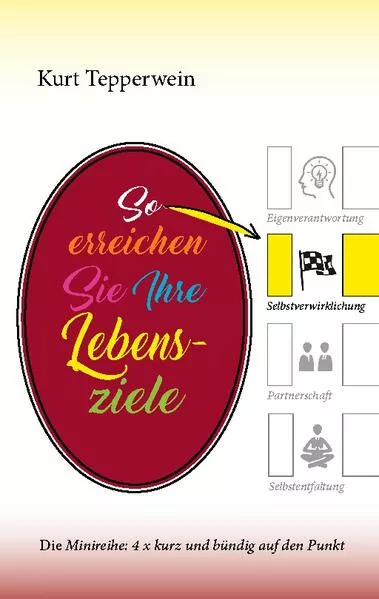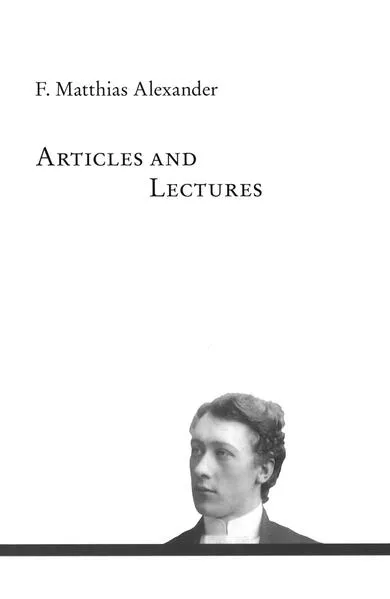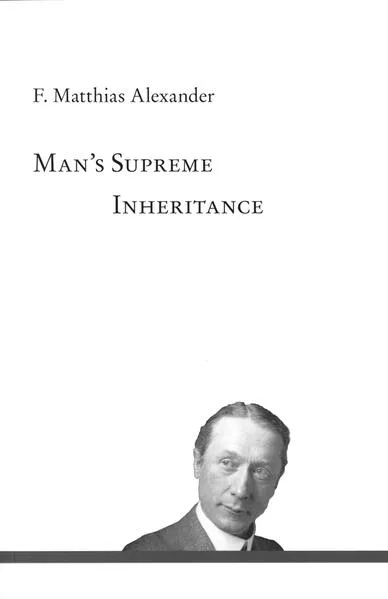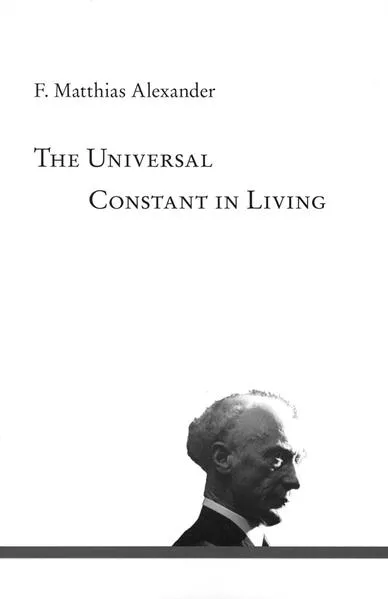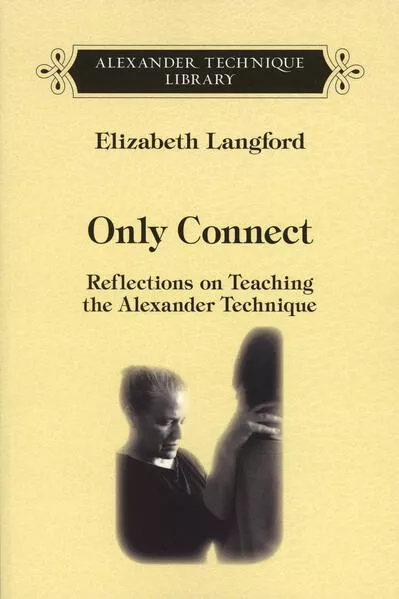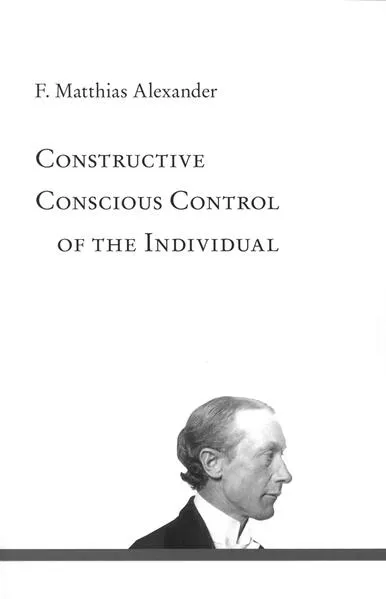
F. Matthias Alexander
Constructive Conscious Control of the Individual
ISBN: 978-3-903-41612-3
233 Seiten | € 16.00
Buch [Taschenbuch]
Erscheinungsdatum:
05.11.2023
Ratgeber
F. Matthias Alexander
Constructive Conscious Control of the Individual
Constructive Conscious Control of the Individual was F. M. Alexander’s second book: it was published in 1923 in the USA and in 1924 in England. It was reprinted several times in England and the USA. The present edition consists of Alexander’s authorised 1946 edition. It contains two prefaces by Alexander and an introduction by the educational philosopher John Dewey.
Constructive Conscious Control of the Individual develops the argument set forth in Alexander’s first book, Man’s Supreme Inheritance. Alexander shows that most of our movements, thoughts, and actions are dictated more by our feelings than by reasoning and that we can develop a reasoning consciousness. Instead of relying on subconscious guidance and control Alexander offers a practical remedy in the resumption of the conscious control of our whole activities.
The famous chapter “Illustration” includes a comprehensive description how to apply his method of conscious control to a simple activity.
Throughout he explains the importance of sensory appreciation and discusses it in relation to a number of themes, including education, the pursuit of happiness, and the fulfilment of our needs.
Constructive Conscious Control of the Individual develops the argument set forth in Alexander’s first book, Man’s Supreme Inheritance. Alexander shows that most of our movements, thoughts, and actions are dictated more by our feelings than by reasoning and that we can develop a reasoning consciousness. Instead of relying on subconscious guidance and control Alexander offers a practical remedy in the resumption of the conscious control of our whole activities.
The famous chapter “Illustration” includes a comprehensive description how to apply his method of conscious control to a simple activity.
Throughout he explains the importance of sensory appreciation and discusses it in relation to a number of themes, including education, the pursuit of happiness, and the fulfilment of our needs.
Unterstütze den lokalen Buchhandel
Nutze die PLZ-Suche um einen Buchhändler in Deiner Nähe zu finden.
Bestelle dieses Buch im Internet
| Veröffentlichung: | 05.11.2023 |
| Höhe/Breite/Gewicht | H 20 cm / B 13 cm / 315 g |
| Seiten | 233 |
| Art des Mediums | Buch [Taschenbuch] |
| Preis DE | EUR 16.00 |
| Preis AT | EUR 16.00 |
| Auflage | 5. Auflage |
| ISBN-13 | 978-3-903-41612-3 |
| ISBN-10 | 3903416126 |
Über den Autor
F. Matthias Alexander (1869–1955) is the originator of the F. M. Alexander Technique. He started to evolve his technique in the early 1890s. Encouraged by doctors, Alexander moved to London in 1904. During the period 1914–24 he also taught regularly in New York and Boston. In New York John Dewey became his pupil and supporter and wrote forewords not only to the next edition of Man's Supreme Inheritance (1918), but also to Constructive Conscious Control of the Individual (1923) and The Use of the Self (1932). In these books he developed and expanded his theme, including examples and case stories as illustrations. During the 1920s and 1930s Alexander's pupils included George Bernard Shaw, Aldous Huxley, Leonard Wolf, Sir Stafford Cripps, The Earl of Lytton and doctors, scientists and performers. In 1931 Alexander started a 3-year course, training teachers in his technique, which ensured its survival and continual expansion. At the outbreak of war in 1939 Alexander moved the school to the USA. Here he finished his last book, The Universal Constant in Living (1942), reminding us all that we are constantly using ourselves, that our use continuously affects our functioning, and that we can co-ordinate and control that use to great advantage. Alexander continued to teach to within a few days of his death in 1955.Diesen Artikel teilen
0 Kommentar zu diesem Buch
... weitere Publikationen von Alexander, F. Matthias
Nächstes Buch
So erreichen Sie Ihre Lebensziele
